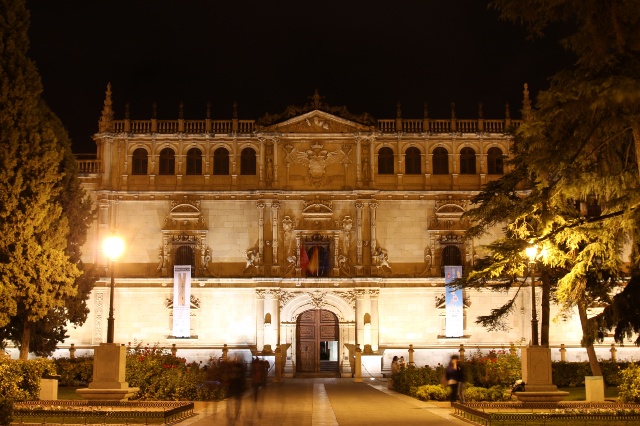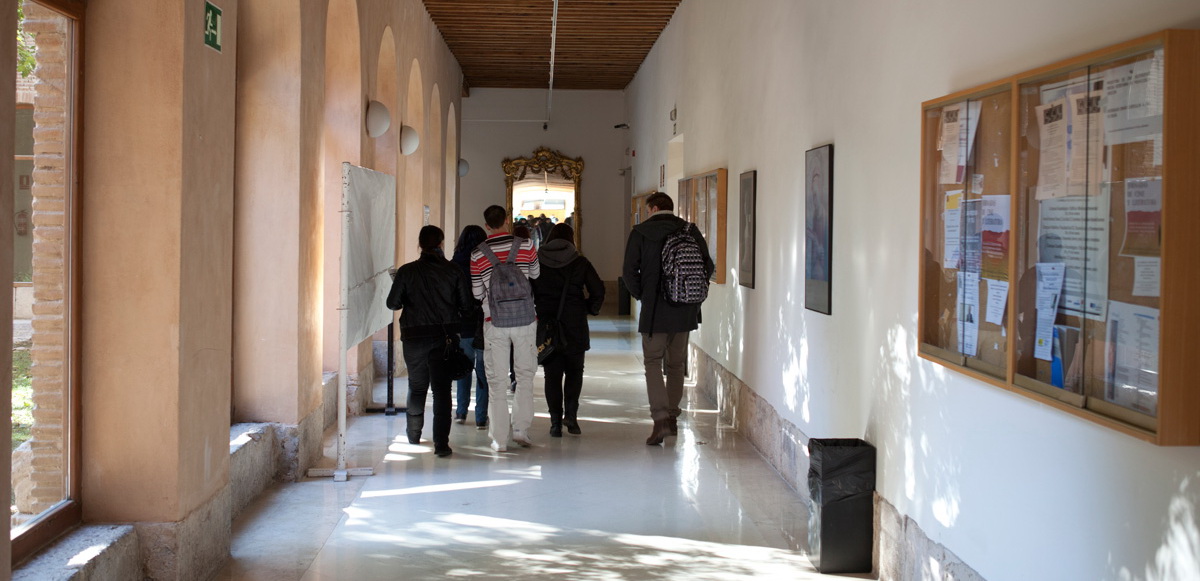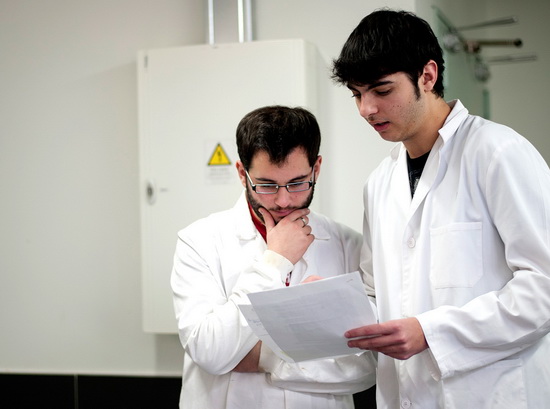
Qualification
Area of expertise
Interdisciplinar
Information leaflet
Participating Universities
Organising Centre, Department or Institute
University Institute of Police Science Research (IUICP)
Law Faculty
Teaching centre(s)
- Law Faculty
- Sciences Faculty
- General Police Station of Scientific Police
- Civil Guard Criminalistics Service
- National Institute of Toxicology and Forensic Sciences
Year Course Started
2009-2010 (RD 1393/2007)
Credits
Official Duration
One academic year, full-time
Minimum number of ECTS by type of registration and course
Type of teaching
Face-to-face classes
Language/s
Spanish
Level of qualification
Level 3 leading to the title of Master's Degree. Level 3 (Master's) of the Spanish Qualifications Framework for Higher Education (MECES) corresponds to level 7 of the European Qualifications Framework (EQF), in accordance with the provisions of the Royal Decree 22/2015, of 23rd January (BOE 07/02/2015).
Professional qualification
This is not a degree title qualifying with ministerial approval for the exercise of regulated professional activities.
Orientation
Professional and research
Directors
Director
Dr. M. Concepción Alonso Rodríguez
mconcepcion.alonso@uah.es
Coordinators
Academic Coordinator
Dr. D. Esteban Mestre Delgado
esteban.mestre@uah.es
Academic Committee
- Dr. Concepción Alonso Rodríguez
- Dr. Carmen Figueroa Navarro
- Dr. María Pía Aracama Alzaga
(State Secretariat for Security of the Ministry of the Interior) - Police Chief Mr. Luis Enrique Hernández-Hurtado García
Head of the Central Scientific Investigation Unit of the General Police Headquarters - Colonel Mr. José Luis Herráez Martín
Head of the Criminalistics Service of the Guardia Civil - Mr. Antonio Gómez García
Director of the National Institute of Toxicology and Forensic Sciences
Contact
iuicp@uah.es
Tlf. +34 91.885.43.86 / +34 91.885.68.90
Administrative issues:
master.universitario@uah.es
Goals and competencies
The goals of this Master's degree are in line with the stipulates of the Spanish Framework for Higher Education Qualifications (MECES) and ensure the achievement of the basic competencies required to obtain a master's degree, following article 3.3, Appendix I of R.D. 1393/2007.
Fulfilment of the goals means students have achieved competencies that must be consistent with the fundamental rights of equality between men and women, with the principles of equal opportunities and universal accessibility for the disabled, and with the values proper to a democratic and peace-loving culture.
Registration information
Number of places for new students
Reserved places: 5% for students with a certified disability of 33% or more.
General access conditions
Specific admission conditions
Specific requirements:
The Master's Academic Committee will decide on applications for admission in accordance with the pre-registration procedure established by the UAH.
entry profile: Criminalistics professionals, as well as other graduates interested in Forensic Sciences.
Selection criteria:
The Director will select students at various points during the pre-registration period, based on their CVs and assigning a score to each application. The selection criteria, in descending order, are:
1. Professional experience in the field of Forensics, Police Science, and Forensic Science, or related areas of study.
2. Doctoral studies.ç
3. Official University Master's degrees.
4. Master's-specific degrees.
5. University specialist and expert degrees.
6. Bachelor's, engineering, and graduate degrees.
7. Diplomas.
8. Affinity with the Master's degree courses.
9. Accredited courses and seminars related to the Master's degree topic.
10. Accredited languages.
11. Motivation letter (reasons for pursuing the Master's degree and the elective chosen for the specialty in which you would enroll).
12. Interview (optional).
Admission depends on the number of places available in each specialty offered, depending on the capacity of the laboratories where the studies are conducted. Therefore, in addition to the aforementioned criteria, affinity with the following Master's lines of study will be assessed: Forensic Acoustics, Forensic Anthropology, Ballistics and Instrumental Traces, Document Analysis and Graphics, Forensic Electronics and Computing, Forensic Genetics, Forensic Imaging and Computer Graphics, Lophoscopy, and Forensic Chemistry. The training needs of the Spanish State Law Enforcement Agencies will also be taken into account. For this reason, 10% of places are reserved for members of foreign law enforcement agencies, who will be admitted provided they meet the requirements established for enrollment in Master's Degrees at Spanish universities.
Subjects, academic staff, competences, teaching guides and final project regulations
Continuance
Collaboration agreements and programmes
Registration
Fees
Fees: 1st matriculation: nationals and residents: 6.035 € ; non-EU non-residents: 9.035 € (approximate information).
Calendar
From September to June
Academic course 2024-25: Beginning of classes 24th September 2025.
Timetable
Monday to Friday, from 16:00 to 19:00 for the general module subjects, and according to the optional subject chosen in the specialisation module.
Venue
Subjects from the General Module are taught in:
- Legal Basis:
Faculty of Law
Historic Campus
C/ Libreros 27
28801. Alcalá de Henares (Madrid). - Fundamentals of Criminal Investigation:
Faculty of Biology, Environmental Sciences and Chemistry
Science and Technology Campus
Ctra. Madrid-Barcelona, Km. 33,600
28805. Alcalá de Henares (Madrid)
Subjects from the Specialisation Module are taught in the laboratories of the General Headquarters of the Scientific Police, the Criminalistics Service of the Guardia Civil or the National Institute of Toxicology and Forensic Sciences, depending on the chosen speciality.
Material resources
Installations, services and plans
(Computer rooms, bibliographic resources, libraries, study rooms...):
External Practicums
Quality process documents
Quality guarantee system
Quality committee
President
- Prof. Drª. María Concepción Alonso Rodríguez (Directora del Máster Universitario en Ciencias Policiales)
Vocals:
- Prof. Dr. Esteban Mestre Delgado (Coordinador del Máster Universitario en Ciencias Policiales)
- Profª. Drª. Gemma Montalvo García (Coordinadora del Programa de Doctorado)
- Comisario Principal D. Francisco Javier Gómez Laina (representante de la Comisaría General de Policía Científica)
- Coronel D. Fernando Domínguez Álvarez (representante del Servicio de Criminalística de la Guardia Civil)
- Dra. Noemí Rivaldería Moreno (representante de los Profesores del Máster Universitario en Ciencias Policiales)
- D. Adrián Rubio Sánchez (representante de los alumnos de Posgrado del IUICP)
- Dña. Maite Sierra Fernández (representante del PTGAS)






